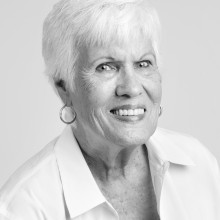
Bettye Anding
Is it true that former President Bill Clinton is among the 41 percent of American seniors who don’t use the internet?
This subject came up during the last week or so as news stories about emails came flying. Most of ‘em, as you know, reporting Hillary Clinton’s use of a private account to send some messages that many think should have been passed along via more secure State Department internet servers.
At least, that’s the way I understand it. Oh, yes, she supposedly destroyed some of the mail, too, saying that much of it was stuff between her and Bill.
Then came the revelation — online and in several print stories — that Bill Clinton doesn’t email; he’s sent only two such messages in his life. That really made Hillary look bad, but thank goodness it was debunked by a Washington Post writer who specializes in finding deceit on the internet: The former prez is just like everybody else, signing in, tapping out a note, and clicking “send.”
Then I read another Post story with the headline “Online for the first time — at the age of 82.” The subject of that piece was a Swedish woman, a former actress, who took part in a crash course that introduced her to the internet. She Googled, consulted Wikipedia, shopped, video-gamed and even online dated.
“Lots going on here,” she said. “It’s really exciting if you asked me.”
Over a period of only five days, she learned a lifetime’s worth of internet skills, wearing a heart monitor to track her anxiety. The experiment was part of a Swedish advocacy campaign aimed to draw attention to the gulf between people who use the internet and those who don’t — particularly seniors.
“Forty-one percent of seniors in the U.S. have never been on the internet,” read the sub-head on the Post story. What’s a senior? A person between 65, the age of eligibility for Social Security and Medicare — and eternity, I guess.
Being online at an advanced age has a lot to do with whether or not you worked pre-retirement at a job that mandated computer abilities, your education, and your ability to bear the expense of using a PC. It also depends on inclination and whether growing older has left you with the ability to master certain skills. Most of the people my age who send me emails are folks who either used PCs at their jobs, or are smart and curious and couldn’t bear to be left out of an internet lifestyle. My husband, a home builder who’d never worked online, bought a computer more than 30 years ago and at 84, spends hours on it every day.
But are many if any of the senior PC users 82 and beginners? No, and I doubt that I — at 79 and counting till summer — would be able to even survive the crash course the Swedish woman did. I’d need more than a heart monitor: How about a ventilator?
Years ago, two sharp and talented reporters in their late 70s worked alongside me in the Times-Picayune Living section. When the paper went from typewriters to word processors, they struggled, but they made it. Each was past 80 when she retired, and not too long after that came the transition to the Microsoft Windows program, which I think would have proven too much for them.
At almost their age, I shop, watch TV, movies and You Tube, book plane flights and theater tickets, email and write this column, look up things — how old is Bill Clinton? He’ll be 69 this August, well able to handle an online dialogue with Hillary — and just ignore the many other capabilities of my complicated new Macintosh.
But I don’t date online. There’s a little matter of a husband, and anyhow I’m not nearly as well preserved as that Swedish actress.
 NOLAbeings Multimedia artist Claire Bangser created NOLAbeings as a portrait-based story project that marries...
NOLAbeings Multimedia artist Claire Bangser created NOLAbeings as a portrait-based story project that marries...  Voodoo in New Orleans: Reviving history: New Orleans fortune telling This article takes a deep dive into the history of Voodoo in New Orleans, its hybridization with Catholicism, and its present-day place in the city's culture. The author visits fortune-tellers in the French Quarter, using their guidance as a tool for introspection rather than a deterministic predictor of the future. Through her experiences in New Orleans, the author feels a mystical connection to both the past and the future.
Voodoo in New Orleans: Reviving history: New Orleans fortune telling This article takes a deep dive into the history of Voodoo in New Orleans, its hybridization with Catholicism, and its present-day place in the city's culture. The author visits fortune-tellers in the French Quarter, using their guidance as a tool for introspection rather than a deterministic predictor of the future. Through her experiences in New Orleans, the author feels a mystical connection to both the past and the future. 